If you like what you are learning and want to delve far deeper into Men’s Psychology, you will get the Comprehensive Guide to Men’s Psychology when you become an Upgraded Member. Consider it below…
Existential Therapy
Existential therapy focuses on specific concerns rooted in the individual's existence. The contemporary existential psychotherapist, Irvin Yalom, identifies these concerns as death, isolation, freedom, and emptiness.
Existential therapy techniques include:
Open dialogue between patient and therapist without judgment:
The relationship between patient and therapist should be flexible, accepting, and supportive.
Mindfulness:
This involves focusing on the present moment while building a meaningful future.
Existential therapy focuses on specific concerns rooted in the individual's existence.
The contemporary existential psychotherapist, Irvin Yalom, identifies these concerns as death, isolation, freedom, and emptiness.
Six propositions of existential therapy are:
Capacity for self-awareness.
Freedom and responsibility.
Establishing an identity and meaningful relationships.
Finding meaning.
Anxiety is unavoidable.
Awareness of mortality.
The three phases of existential therapy are identification and clarification, self-exploration and examination, and application. Existential therapy can be applied to a wide variety of settings and has a strong focus on the client's needs.
Men Need to Go on the Mission and Not Look Back:
Orpheus and Eurydice
The story of Orpheus the musician going into the underworld to rescue his deceased wife Euridyce illustrates the concept of accepting the moment existentially…
Continued for paid members…
Eurydice was wandering in the forest with the Nymphs. In some versions of the story, the shepherd Aristaeus saw her, and, beguiled by her beauty, made advances towards her and began to chase her. Other versions of the story relate that Eurydice was merely dancing with the Nymphs. While fleeing or dancing, she was bitten by a snake and died instantly.
Orpheus sang his grief with his lyre and managed to move everything, living or not, in the world; both humans and gods learned about his sorrow and grief.
At some point, Orpheus decided to descend to Hades to see his wife. Any other mortal would have died, but Orpheus, being protected by the gods, went to Hades and arrived at the Stygian realm, passing by ghosts and souls of people unknown. He also managed to attract Cerberus, the three-headed dog, with a liking for his music. He presented himself in front of the god of the Greek underworld, Hades, and his wife, Persephone.
Orpheus played his lyre, attracting Hades. Hades told Orpheus that he could take Eurydice back with him but under one condition: she would have to follow behind him while walking out from the caves of the underworld, and he could not turn to look at her as they walked.
Thinking it a simple task for a patient man like himself, Orpheus was delighted; he thanked the gods and left to ascend back into the living world. Unable to hear Eurydice's footsteps.
However, he began to fear the gods had fooled him.
Eurydice might have been behind him, but as a shade, having to come back into the light to become a full woman again. Only a few feet away from the exit, Orpheus lost his faith and turned to see Eurydice behind him, sending her back to be trapped with Hades forever.
Orpheus tried to return to the underworld but was unable to, possibly because a person cannot enter the realm of Hades twice while alive. According to various versions of the myth, he played a mourning song with his lyre, calling for death so that he could be united with Eurydice forever.
He was killed either by beasts tearing him apart or by the Maenads, in a frenzied mood.
Zeus decided to strike him with lightning knowing Orpheus might reveal the secrets of the underworld to humans. In this telling, the Muses decided to save his head and keep it among the living people to sing forever, enchanting everyone with his melodies.
They additionally cast his lyre into the sky as a constellation.
Apply this “being present” concept to your life, as illustrated in this video:
We'll do it all, Everything, On our own.
We don't need anything, or anyone.
If I lay here… If I just lay here…
Would you lie with me and just forget the world?
I don't quite know how to say how I feel.
Those three words are said too much.
They're not enough.
If I lay here… If I just lay here…
Would you lie with me and just forget the world?
Forget what we're told before we get too old…
Show me a garden that's bursting into life!
Let's waste time chasing cars, around our heads
I need your grace, to remind me to find my own.
If I lay here… If I just lay here…
Would you lie with me and just forget the world?
Forget what we're told before we get too old…
Show me a garden that's bursting into life!
All that I am, all ll that I ever was
is here in your perfect eyes, they're all I can see.
I don't know where, confused about how as well…
Just know that these things will never change for us at all.
If I lay here… If I just lay here…
Would you lie with me and just forget the world?
(Lyrics and vocals by Gary Lightbody)
Existential Therapy for Adolescents
Existential Therapy (“paternal”) vs. Rogerian Humanistic Therapy (“maternal”) - simply put, just “being nice to people” often do not heal them. Also, simply put, ET is “an encounter between one ‘who’ and another ‘who.’” ET “attends” the other person, not in the “self” or “psyche” or “soul,” but is “nonintervention.”
Principles:
Our time on earth is limited.
There are no guarantees.
We are free to change the direction of our lives if we take responsibility (boundaries.)
At the outset and the end of life, we are truly alone in the world.
The goal of ET is “lived time.”
Groth goes on to describe:
The principal negative affective states in psychiatry are depression and anxiety. Now consider time frames: depression is often “stuck in the past,” and the anxious person is “worried about the future,” but that which is existential roots us in the PRESENT, where we are most highly “existent” (Heidegger, 1982, said, “Time is existence.”.
This is notable as a goal of any therapy and any therapist’s office, beginning with Freud’s: OBSERVING EGO is the learned skill of being in the present, where there is maximum understanding, cognitive processing, free will to make decisions and therefore to take informed action for the better then, changing our lives. This also has links to BAT - Behavioral Activation Therapy.
Father Hunger
The need for rough-and-tumble play extends into adolescence, where boys may find non-sexual contact through sports.
The principal negative affective states in psychiatry are depression and anxiety. Now consider time frames: depression is often “stuck in the past,” and the anxious person is “worried about the future,” but that which is existential roots us in the PRESENT, where we are most highly “existent” (Heidegger, 1982, said, “Time is existence.”.
This is notable as a goal of any therapy and any therapist’s office, beginning with Freud’s: Observing Ego is the learned skill of being in the present, where there is maximum understanding, cognitive processing, free will to make decisions and, therefore to take informed action for the better than, changing our lives. This also has links to BAT - Behavioral Activation Therapy.
You may at some point have been taught that the natural, instinctual tendency of males to remain "stoic" in the face of threats, trauma, and tragedy, but evolutionary psychologists explain this natural male principle to have beneficial effects on the survival of the species overall.
Suppose males, the "hunters" in the early hunter-gatherer societies of humans, could not set emotions aside for a time in order to go on fighting rival tribes or to continue the hunt until the food is captured and killed. In that case, the society is starved or rendered into any manner of hellish conditions in being apprehended by an enemy person.
Humans cannot just wish away their natural unconscious instincts like dreams and fantasies. In fact, they serve a useful purpose that benefits partners, children, families, communities, and society in general and need to be worked with by using such instincts in a mature masculine / Positive Psychology framework.
For example, being "Compassionately stoic," "Courageously stoic," or "Heroically stoic." (Of note is that Heroism is defined as doing something to protect, serve, save or benefit another person even over their own objection.) In this sense, all Heroism is parental in nature and paternalistic in parenting style, whether or not the heroic person happens to be male or female.
We will learn in a future lesson how the methodology of growing mature character virtue has several working parts to it—composing all the diverse character virtues, in fact—and one of those universal working parts is called Observing Ego. This is the ability to be mindful and to step outside yourself to look back at what is going on, learn from the situation at hand, and adapt to it in the moment.
It is the same concept as "Mentalization," which is an essential component of Existential Therapy. Living in the moment, right now, today.
A second core component of mature character is using mature, dynamic, personal boundaries. This aspect is also built into Existential Therapy in the form of "being free to change the direction of our lives if we take responsibility."
Consider these two universal aspects of any character virtue: Observing Ego and Personal Boundaries—and we will expand on them in future lessons that teach you how to "construct" any character virtue out of these working parts and others.


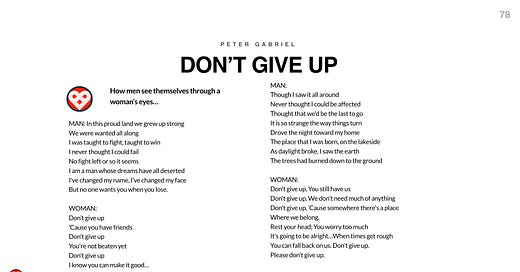
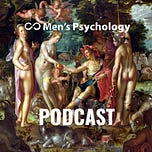

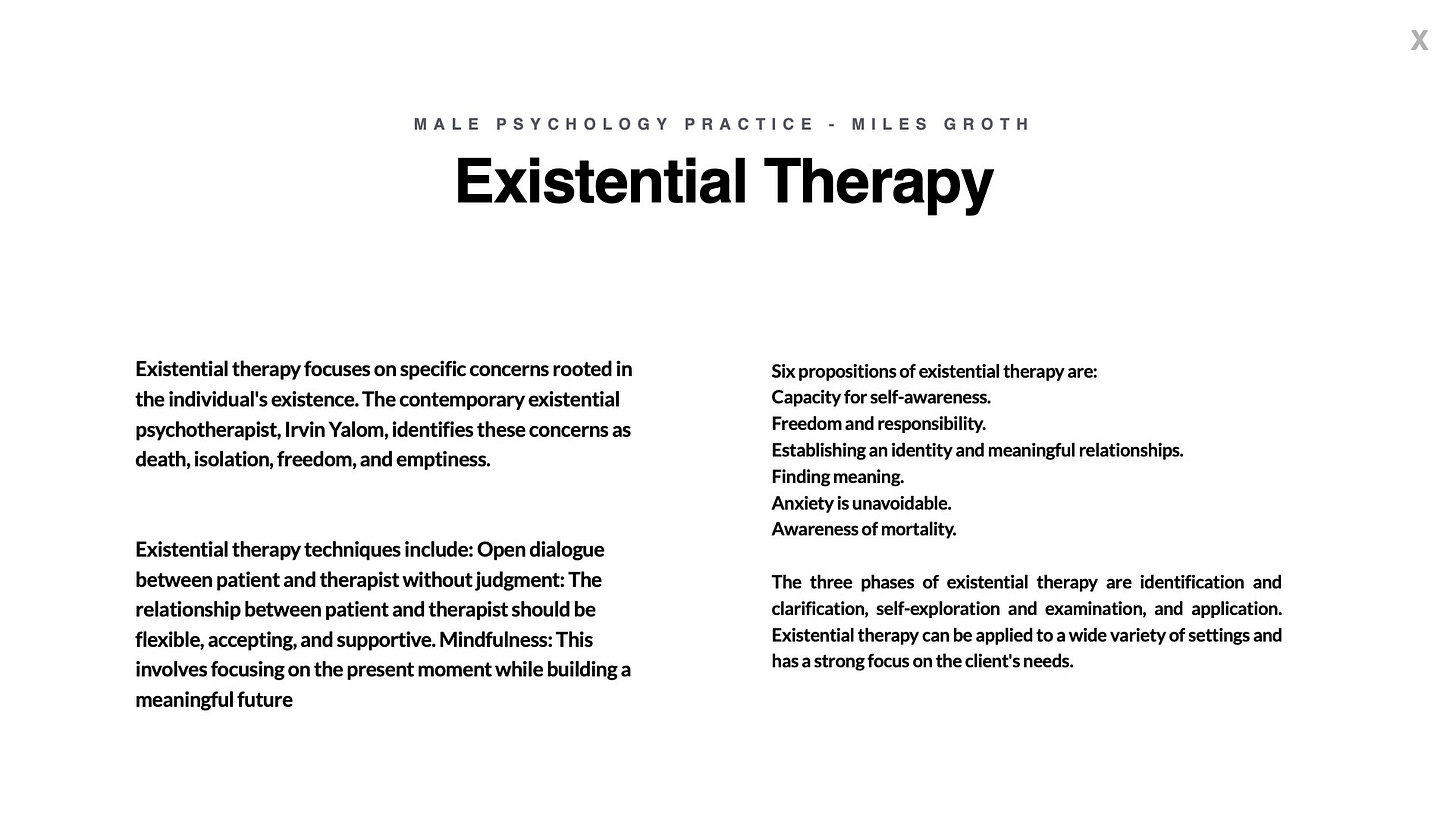


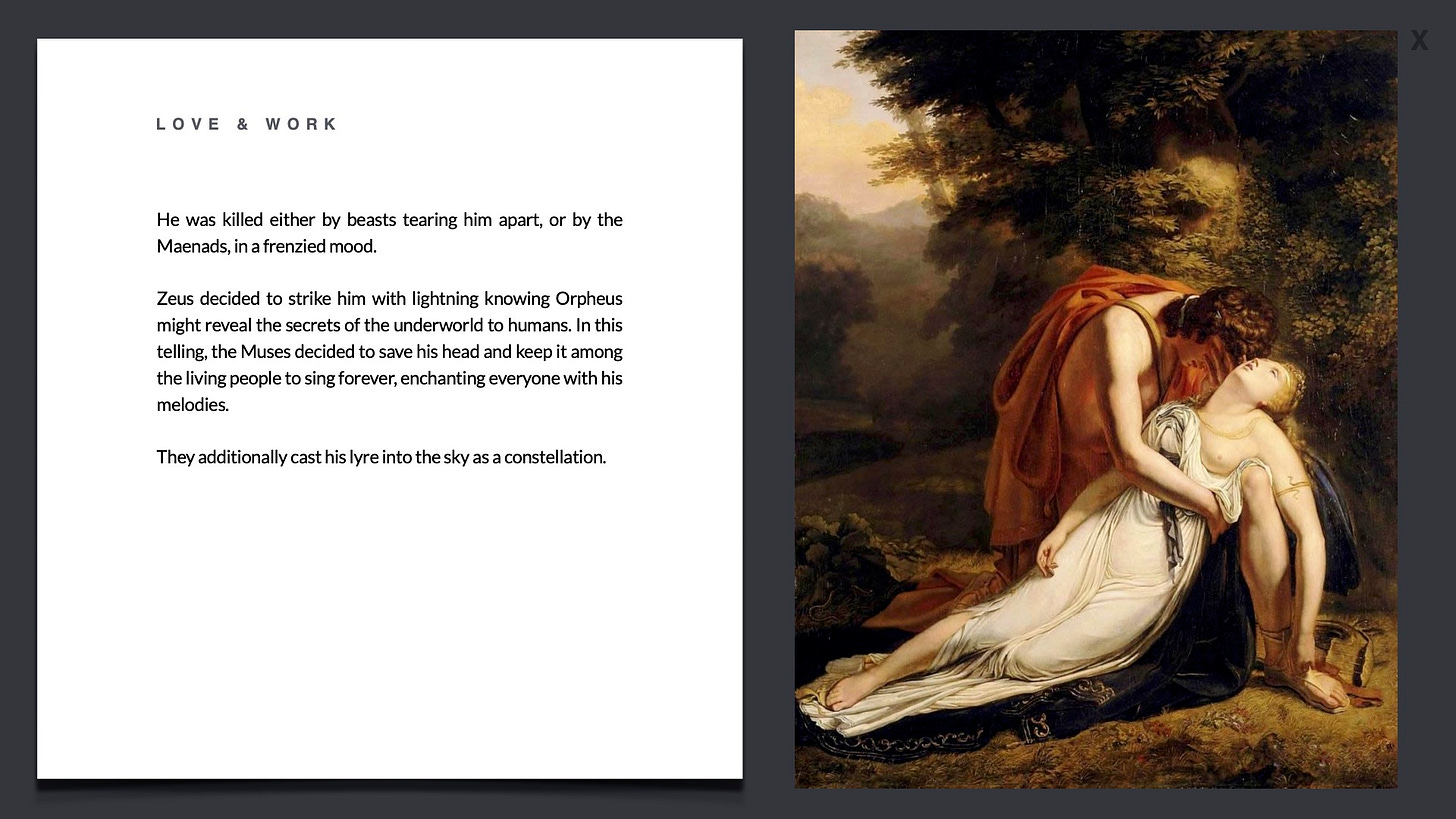
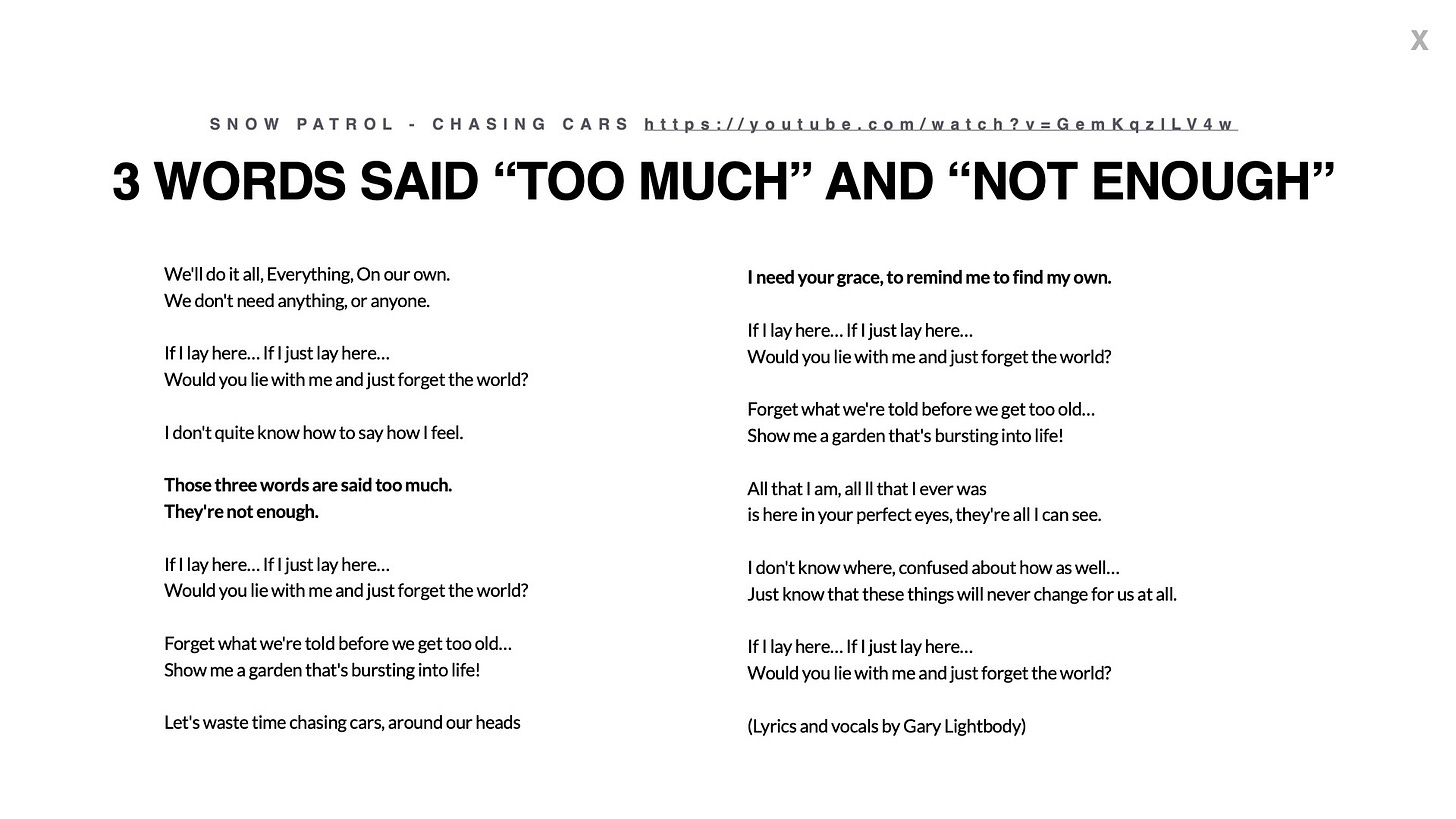
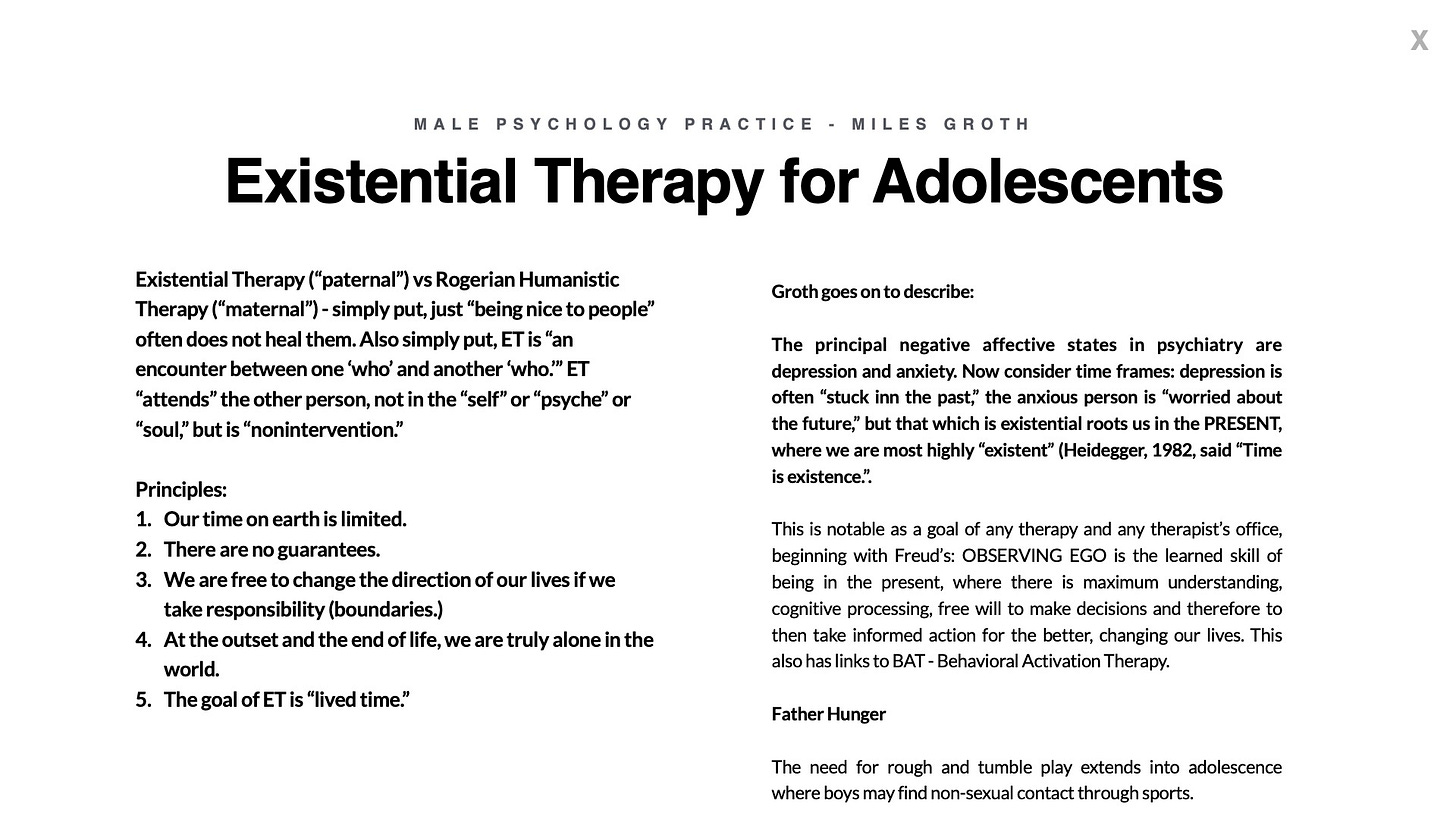


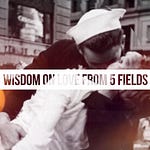






Share this post